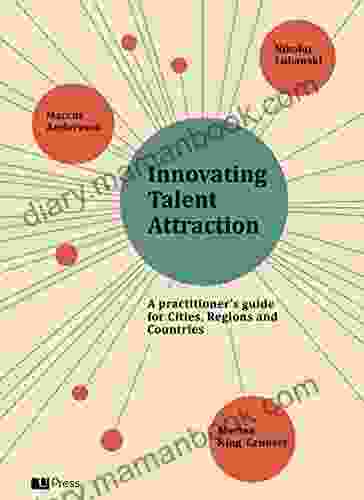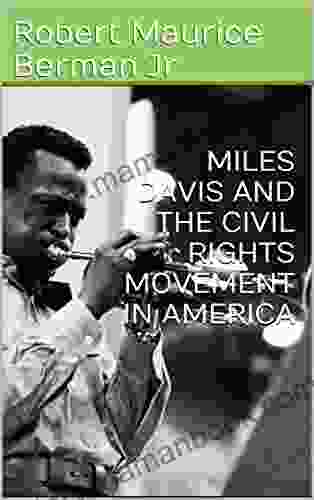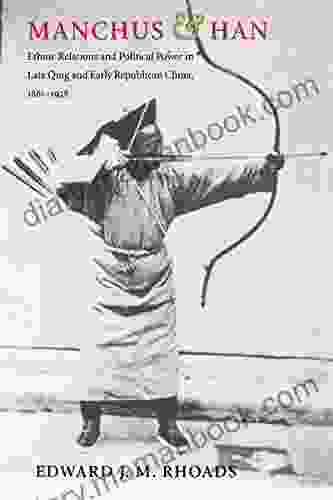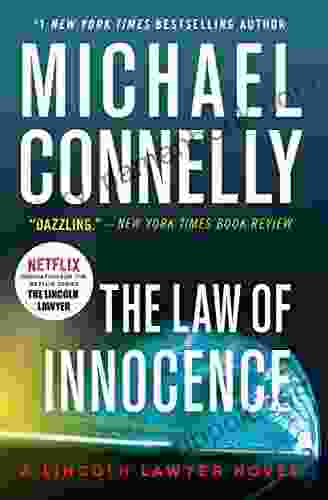Ethnic Relations and Political Power in Late Qing and Early Republican China

Ethnic relations in China have been complex and fluid throughout history. The late Qing and early Republican periods were no exception, as the country underwent significant political and social changes. These changes had a profound impact on the ways in which different ethnic groups interacted with each other and with the state.
4.7 out of 5
| Language | : | English |
| File size | : | 5632 KB |
| Text-to-Speech | : | Enabled |
| Screen Reader | : | Supported |
| Enhanced typesetting | : | Enabled |
| Print length | : | 414 pages |
The Late Qing Period
The late Qing period (1644-1912) was a time of great political and social upheaval in China. The Qing dynasty, which had been founded by the Manchus, was facing increasing pressure from both internal and external forces. Internally, the country was plagued by rebellions and peasant uprisings. Externally, the Qing government was forced to deal with the encroachment of Western powers.
These challenges had a significant impact on ethnic relations in China. The Manchu government was increasingly unable to control the vast and diverse territory of the empire. This led to a rise in ethnic tensions and conflicts.
One of the most significant ethnic conflicts of the late Qing period was the Taiping Rebellion (1850-1864). The rebellion was led by a charismatic Christian convert named Hong Xiuquan. Hong claimed to be the younger brother of Jesus Christ and promised to establish a new kingdom of peace and equality. The rebellion attracted a large following among the poor and disenfranchised, especially in southern China.
The Taiping Rebellion was eventually defeated by the Qing government with the help of Western powers. However, the rebellion had a lasting impact on ethnic relations in China. The rebellion had shown the Qing government to be weak and unable to protect its people. This led to a loss of confidence in the government and a rise in ethnic tensions.
The Early Republican Period
The Qing dynasty was overthrown in 1912 and replaced by a new republic. The republic was founded on the principles of democracy and equality. However, these principles were not always easy to put into practice. The new republic was plagued by political instability and warlordism.
The political instability of the early Republican period led to a resurgence of ethnic conflicts. Warlords often used ethnic tensions to their advantage, recruiting soldiers from different ethnic groups and playing them off against each other. This led to a number of bloody conflicts, including the Xinjiang War (1933-1934) and the Sichuan-Yunnan-Guizhou War (1945-1949).
The early Republican period also saw the rise of a new form of Chinese nationalism. This nationalism was based on the idea that all Chinese people, regardless of their ethnicity, were part of a single nation. This new nationalism helped to unite Chinese people against foreign aggression. However, it also led to a suppression of ethnic diversity and a rise in Han Chinese chauvinism.
Ethnic relations in China have been complex and fluid throughout history. The late Qing and early Republican periods were no exception, as the country underwent significant political and social changes. These changes had a profound impact on the ways in which different ethnic groups interacted with each other and with the state.
The political instability and warlordism of the early Republican period led to a resurgence of ethnic conflicts. However, the rise of a new form of Chinese nationalism also helped to unite Chinese people against foreign aggression. This new nationalism has played a significant role in shaping ethnic relations in China up to the present day.
4.7 out of 5
| Language | : | English |
| File size | : | 5632 KB |
| Text-to-Speech | : | Enabled |
| Screen Reader | : | Supported |
| Enhanced typesetting | : | Enabled |
| Print length | : | 414 pages |
Do you want to contribute by writing guest posts on this blog?
Please contact us and send us a resume of previous articles that you have written.
 Top Book
Top Book Novel
Novel Fiction
Fiction Nonfiction
Nonfiction Literature
Literature Paperback
Paperback Hardcover
Hardcover E-book
E-book Audiobook
Audiobook Bestseller
Bestseller Classic
Classic Mystery
Mystery Thriller
Thriller Romance
Romance Fantasy
Fantasy Science Fiction
Science Fiction Biography
Biography Memoir
Memoir Autobiography
Autobiography Poetry
Poetry Drama
Drama Historical Fiction
Historical Fiction Self-help
Self-help Young Adult
Young Adult Childrens Books
Childrens Books Graphic Novel
Graphic Novel Anthology
Anthology Series
Series Encyclopedia
Encyclopedia Reference
Reference Guidebook
Guidebook Textbook
Textbook Workbook
Workbook Journal
Journal Diary
Diary Manuscript
Manuscript Folio
Folio Pulp Fiction
Pulp Fiction Short Stories
Short Stories Fairy Tales
Fairy Tales Fables
Fables Mythology
Mythology Philosophy
Philosophy Religion
Religion Spirituality
Spirituality Essays
Essays Critique
Critique Commentary
Commentary Glossary
Glossary Bibliography
Bibliography Index
Index Table of Contents
Table of Contents Preface
Preface Introduction
Introduction Foreword
Foreword Afterword
Afterword Appendices
Appendices Annotations
Annotations Footnotes
Footnotes Epilogue
Epilogue Prologue
Prologue Albert Knapp Psyd Bcba D Rpt S
Albert Knapp Psyd Bcba D Rpt S K Sharronne
K Sharronne Alberto Carretero
Alberto Carretero Stella Gray
Stella Gray Otura Mercy
Otura Mercy Alejandro Junger
Alejandro Junger George Macdonald
George Macdonald Caleb Guilliams
Caleb Guilliams A J Curtis
A J Curtis Martin Aguilera
Martin Aguilera Marianne Moore
Marianne Moore Michelle Wilson
Michelle Wilson Eva Marie Wood Wolf
Eva Marie Wood Wolf Jodi Perkins
Jodi Perkins Robert Thompson
Robert Thompson Margaret Mitchell
Margaret Mitchell Patrick Honohan
Patrick Honohan Fenwick W English
Fenwick W English Simon Stephens
Simon Stephens Shanna Bell
Shanna Bell
Light bulbAdvertise smarter! Our strategic ad space ensures maximum exposure. Reserve your spot today!

 Leo TolstoyUnveiling the Enigmatic Pope Joan: A Literary Exploration in Donna Woolfolk...
Leo TolstoyUnveiling the Enigmatic Pope Joan: A Literary Exploration in Donna Woolfolk... Davion PowellFollow ·3.5k
Davion PowellFollow ·3.5k Casey BellFollow ·15.9k
Casey BellFollow ·15.9k Cody RussellFollow ·15.7k
Cody RussellFollow ·15.7k Lord ByronFollow ·19.3k
Lord ByronFollow ·19.3k Eric NelsonFollow ·14.5k
Eric NelsonFollow ·14.5k Jeffery BellFollow ·6.6k
Jeffery BellFollow ·6.6k Pablo NerudaFollow ·13.8k
Pablo NerudaFollow ·13.8k Cason CoxFollow ·8.8k
Cason CoxFollow ·8.8k

 Jorge Luis Borges
Jorge Luis BorgesThe Truth About the 15 Qualities That Men Secretly Admire...
Every woman wants to be loved and...

 Francisco Cox
Francisco CoxPlague Ship: Unraveling the Mystery of the Oregon Files
The Oregon Files, a collection of classified...

 Rudyard Kipling
Rudyard Kipling101 Strategies to Make Academic Vocabulary Stick: A...
Academic vocabulary is an...

 Fletcher Mitchell
Fletcher MitchellPractitioner Guide for Cities, Regions, and Countries:...
The world is...

 Emilio Cox
Emilio CoxOptimization and Security Challenges in Smart Power Grids
Smart power grids (SPGs) are emerging as a...

 Chandler Ward
Chandler WardMiles Davis and the Civil Rights Movement in America: A...
Miles Davis, the iconic jazz...
4.7 out of 5
| Language | : | English |
| File size | : | 5632 KB |
| Text-to-Speech | : | Enabled |
| Screen Reader | : | Supported |
| Enhanced typesetting | : | Enabled |
| Print length | : | 414 pages |










